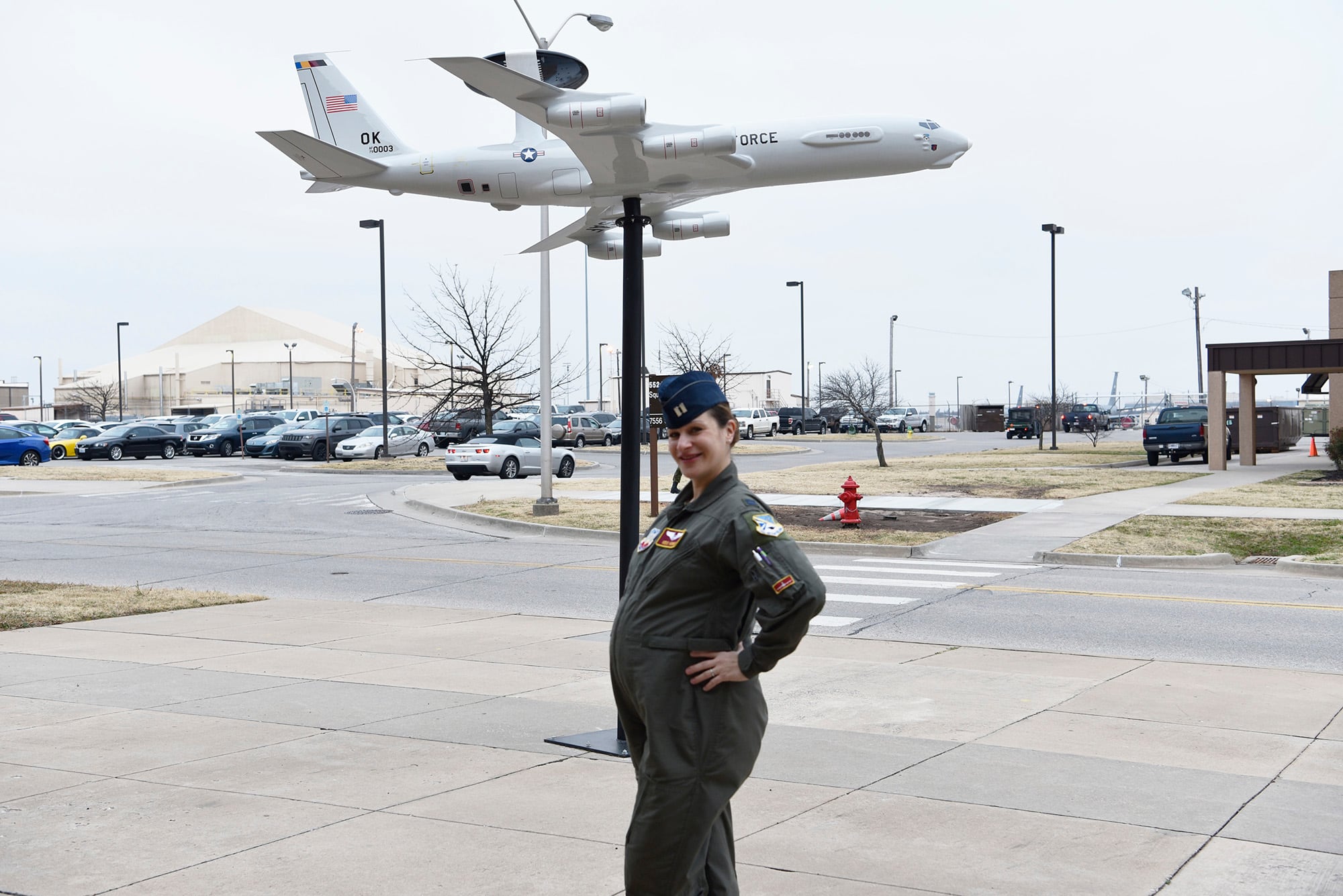It all started because the Air Force was looking for a few women to wear test its new maternity flight suit.
Fox News anchor Tucker Carlson seized the moment on his Tuesday show to drop some hot takes about how catering to pregnant women is “feminizing” the military and allowing China to surpass the U.S. in its dominance of national defense.
“So we’ve got new hairstyles and maternity flight suits,” Carlson said, also referring to recently updated Army and Air Force hair regulations. “Pregnant women are going to fight our wars. It’s a mockery of the U.S. military.”
The clip made its way around social media like wildfire on Wednesday, catching the attention of many current and former female service members, as well as the men who have served alongside them.
But then, the story took on a different tone, spurred by challenges from some of these rank-and-file troops ― senior leadership got involved.
There are a handful of current, senior-ranking military officials who have embraced Twitter as a direct line to their troops, as well as a place to wade into the discussions that are ― or could be ― driving policy.
“We’ve seen senior military leaders use social media in a completely new way within the past year,” Martina Chesonis, spokeswoman for the Service Women’s Action Network, told Military Times on Thursday. “Seeing senior military leaders address Tucker Carlson’s comments on pregnancy in the military so quickly and so directly is really validating, honestly.”
In the past year, the military has put a renewed focus on diversity and inclusion, standing up task forces and putting out media content about their commitment to the effort. Carlson’s comments represent one of the first times they’ve had the opportunity to put their money where their mouths are.
“To watch our senior military leaders not only defend the institutional changes that they’re making, but to boldly proclaim that we’re moving in the right direction ― it really gives hope that what we’re seeing is a true culture change,” Chesonis said.
While the top-down approach is the first and easiest step in making that kind of culture change, seeing four-star generals use their platforms to take on someone with Carlson’s audience could inspire the rank-and-file to do the hard work of calling out sexism or bigotry at their individual levels.
Also, Chenosis said, social media is a quick and organic way to set the tone for leaders on down the chain.
“What they’re doing by putting this on social media, where all of the military is ― where everyone is now, really ― it’s giving an easy sound bite that all of our commanders can use,” she said, rather than the traditional force-wide memos or heavily vetted public affairs releases.
And, she added, by countering his comments with photos or anecdotes of the women they’ve proudly served with, they shifted the narrative to the reality of how women serve.

Culture change
While all of the services have been grappling with the ways that traditional military culture subjugates and disenfranchises women, the Army in the past year has taken much of the public brunt.
Last April, when then-Pfc. Vanessa Guillen went missing from Fort Hood, Texas, a massive social media campaign rallied around her family and pushed Army Criminal Investigation Command to investigate her disappearance more aggressively.
It turned out that not only had Guillen been killed, allegedly by a fellow soldier, a subsequent independent investigation into her chain of command found a toxic environment that left many women serving at Fort Hood in fear for their safety.
The response to the report, from untold numbers of women around the military, was a resounding “me, too.”
So with all of that in the frame, senior leadership had a choice: Shy away from feeding the troll, or take a stand, using their own voices to project the reality and the values of the U.S. military, rather than letting Carlson speak for them.
“Tucker Carlson is not a spokesman for the U.S. military,” Chenosis said.
And, as one senior-enlisted Marine noted, he has no experience serving in the military.
Gen. Paul Funk, the head of Army Training and Doctrine Command, and his deputy, Lt. Gen. Ted Martin, also weighed in, as the commanders in charge of the Army organization that not only makes new soldiers, but creates the tactics and philosophy that the Army uses to, as Carlson put it, “win wars.”
His comments made their way up to the Office of the Secretary of Defense, whose spokesman on Thursday put a fine point on the issue.
“To be sure, we still have a lot of work to do to make our military more inclusive, more respectful of everyone ― especially women. … But we recognize the lack of female leadership across the senior ranks. We pledge to do better, and we will,” John Kirby said. “What we absolutely won’t do is take personnel advice from a talk show host, or the Chinese military. Now maybe those folks feel like they have something to prove ― that’s on them. We know we’re the greatest military in the world today, and even for all the things we need to improve, we know exactly why that’s so.”
‘Diversity and inclusion’
A little back story: The maternity flight suit has been in the works for a while, as have other updates to protect women’s health while serving in uniform ― among them, allowing ponytails in uniform to prevent scalp damage caused by tight, heavy buns, as well as body armor that not only covers women’s torsos properly, but doesn’t dig into them and cause as much injury as it’s designed to prevent.
An important thing to note about this effort, and Carlson’s reaction, is that flight suits are one of many kinds of uniforms service members wear, and they are as much about distinguishing aviators and aircrew from other troops as they are about operating aircraft.
Which is to say, a pregnant service member ― who is not authorized to fly in combat in the first place ― will wear a flight suit for all manner of daily work, including training flights required to stay proficient.
“It’s just such a lack of understanding of how wars are fought, how deployments are managed, how women contribute in the military,” Chenosis said. “And what’s unfortunate is that he has that platform. And so for people who don’t understand what is real, they can walk away from that thinking, ‘Oh my God, we’re sending our pregnant women into battle. This is ridiculous.’ "
In fact, many women in military aviation plan their pregnancies around the regularly scheduled, non-operational jobs every service member has in the course of a career. They often opt to expand their families while working as instructors, or other non-deployable jobs, so as not to miss a deployment because of a pregnancy.
“I would hope that, in the reaction he’s seen, and hopefully in our reaction here today, he’ll realize the mistake he made and express some regret about the manner in which he, essentially, demeaned the entire U.S. military, and how we defend and how we serve this country,” Kirby said.
Meghann Myers is the Pentagon bureau chief at Military Times. She covers operations, policy, personnel, leadership and other issues affecting service members.





